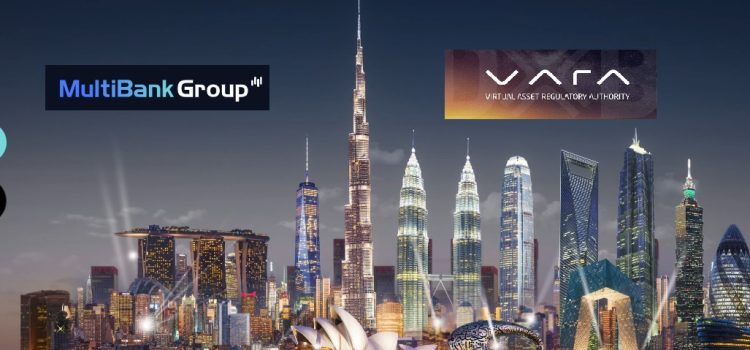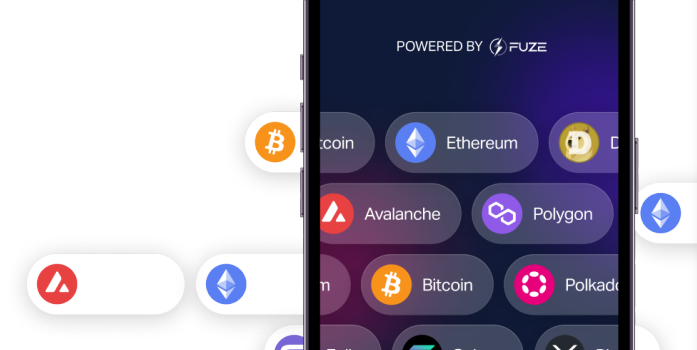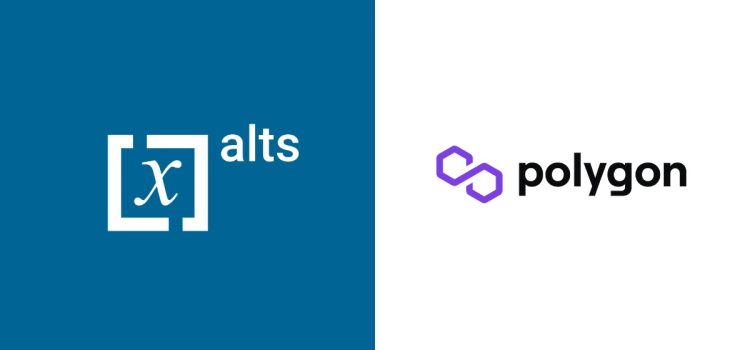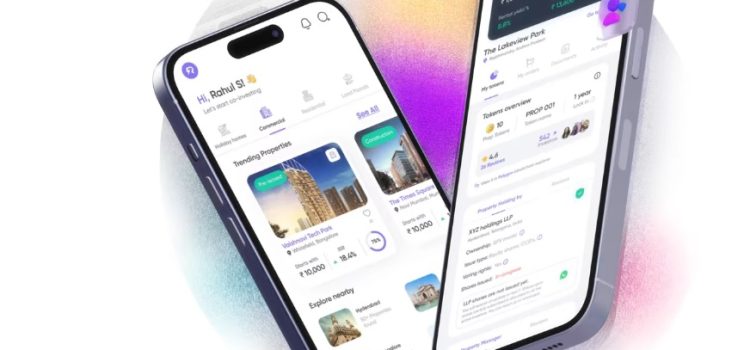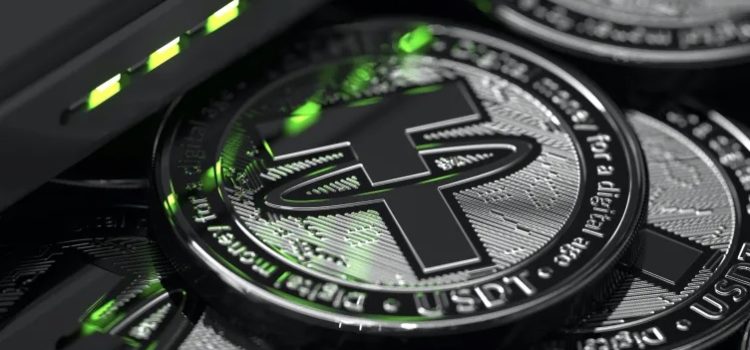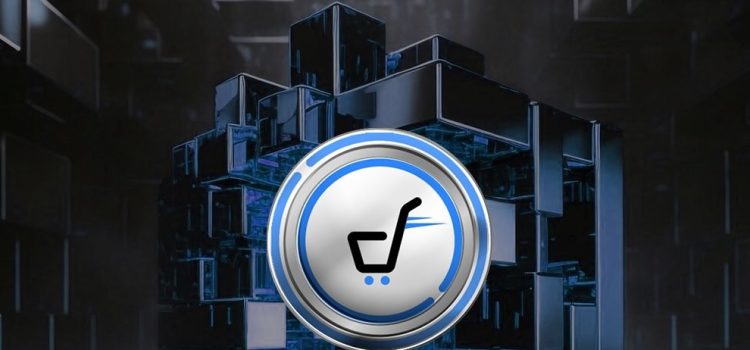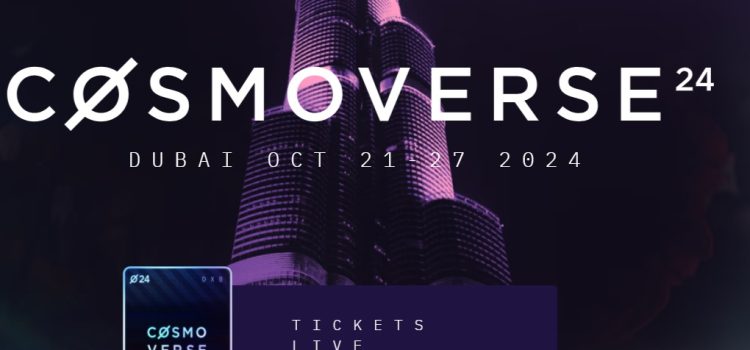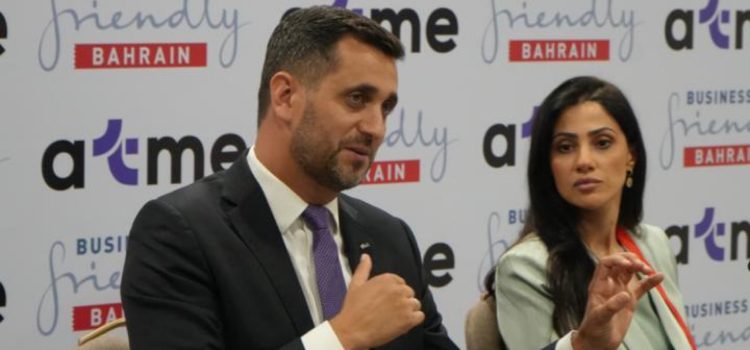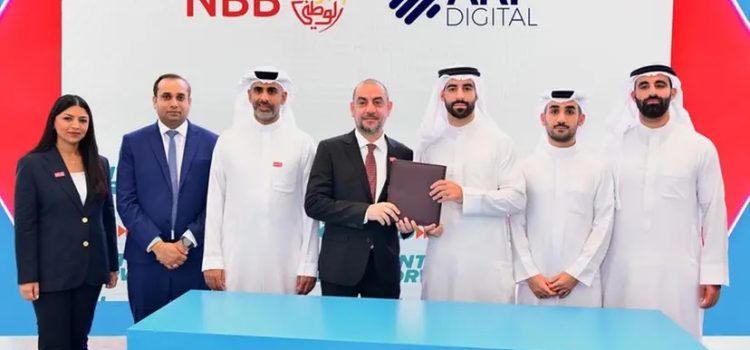Cosmoverse, the largest interchain conference, returns for a fourth year, instead heading to Dubai from October 21-27, 2024. As per the organizers, this will be another opportunity to shine a spotlight on the expanding Cosmos-SDK ecosystem while broadening its focus to encompass the wider interchain and crypto industry.
Building on its legacy, Cosmoverse has introduced Uptober, establishing October as the prime month for blockchain and crypto events. Alongside Cosmoverse, attendees can expect other major events in October and early November, such as Blockchain Life, Cardano Summit, and the Future Blockchain Summit, further establishing Dubai as the epicenter of blockchain innovation.
“We’re excited to bring Cosmoverse to Dubai, a global hub for crypto innovation. The UAE is fast becoming the go-to destination for builders in this space. Cosmoverse is expanding beyond the Cosmos ecosystem to demonstrate how the Cosmos tech stack can integrate across various sectors. With new tracks covering AI, EVM, Tokenization, and more, we’re setting new industry standards and showcasing the future of the interchain ecosystem,” says Juri Maibaum, Co-Founder of Cosmoverse.
Cosmoverse Tracks will transform the conference experience, offering dedicated spaces for attendees to dive deep into the topics that matter most. Tracks include Bitcoin, AI, EVM, Tokenization & RWAs, Interchain, ZK, and Gaming & NFTs. These tracks will offer not only talks but also hacker lounge discussions, workshops, and mentorship sessions, creating opportunities for deeper collaboration.
Cosmoverse isn’t just focused on the Cosmos ecosystem—it’s about fostering a truly multichain future, bringing together projects, enterprises, and institutions across the broader crypto space. The Cosmos tech stack, particularly the Cosmos-SDK, and IBC, continues to power some of the most innovative projects across the industry, from DeFi to decentralized AI, and Cosmoverse 2024 aims to explore the diverse adoption of Cosmos technology
Headline Speakers for this year’s event include:
● Mert Mumtaz, CEO, Helius Labs
● Sandeep Nailwal, Co-Founder, Polygon
● Mustafa Al-Bassam, Co-Founder, Celestia
● Nikita Sachdev, Founder & CEO, Luna Media Corporation
● Guy Turner, CCO & Co-Founder, Coinbureau
Cosmoverse is also introducing Cosmos Ventures, an elevated VC Track that includes an Executive Lounge, Pitching Competition, and fundraising support. The Pitching Competition offers selected projects the chance to pitch in front of leading VCs and investors, with the final round taking place on the main stage. Pitching projects receive complimentary Executive Tickets, making it a prime opportunity to showcase their ideas to a high-caliber audience.
The Executive Lounge will serve as a hub for investors, C-suite executives, market makers, validators, and other industry leaders. It offers an exclusive environment for forging connections and engaging in business development efforts, complete with VIP access, pre-event access, and VC speed dating.
Cosmoverse 2024 also ensures a seamless conference experience with integrated side events, meaning attendees won’t have to move between venues. Key side events include dYdX Day on October 21st and Bitcoin Day by Persistence on October 23rd, creating a holistic experience for all participants.
With over 2,000 attendees expected, Cosmoverse 2024 is set to be the most diverse and productive yet, offering unparalleled opportunities for collaboration, networking, and innovation across the interchain ecosystem.
Late Admission Tickets are now available for $299, offering access to one of the most anticipated blockchain conferences of the year.









